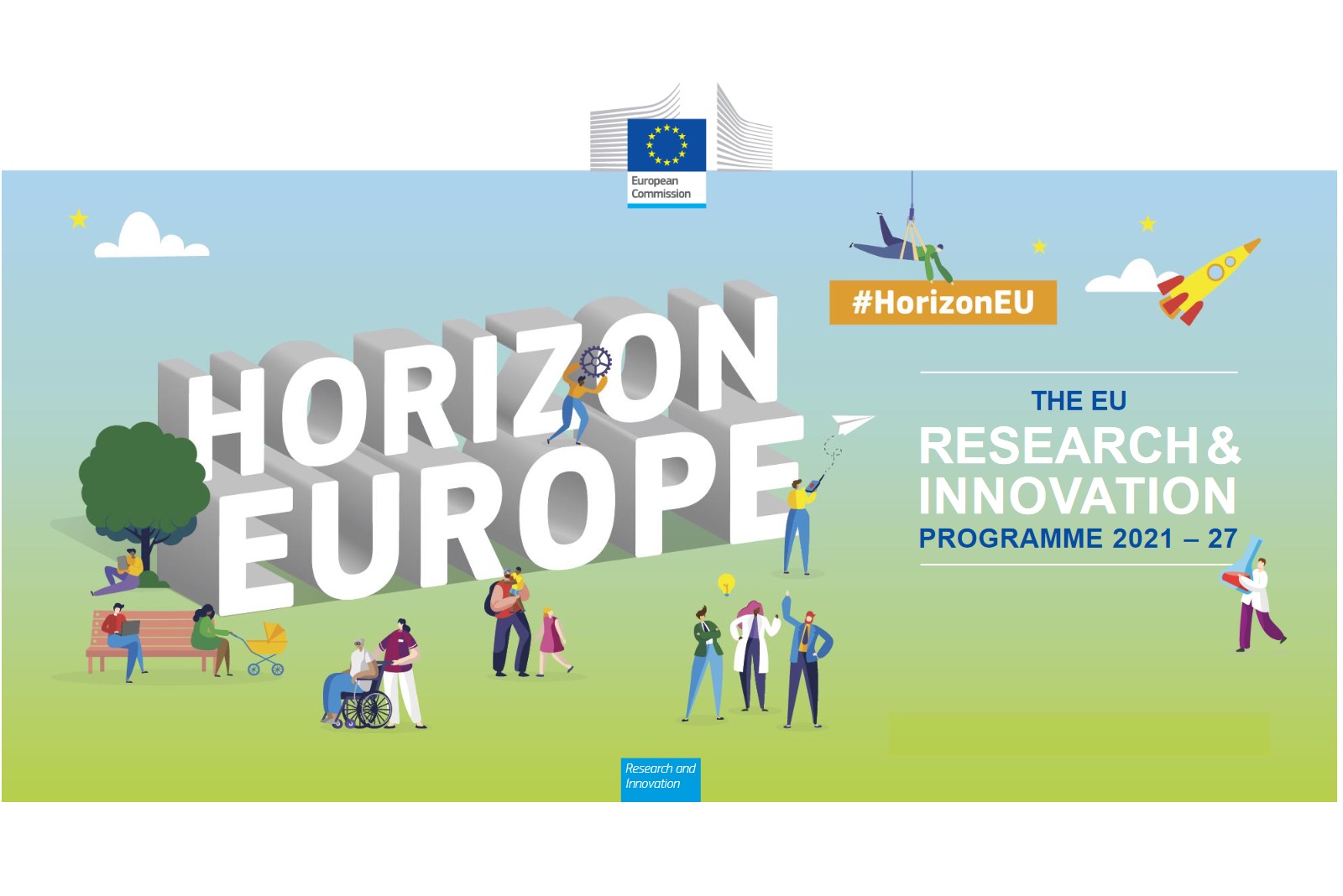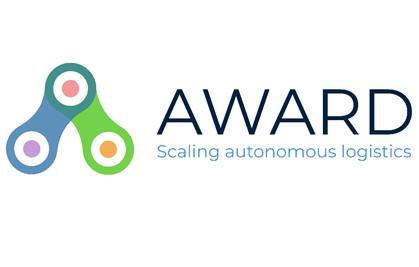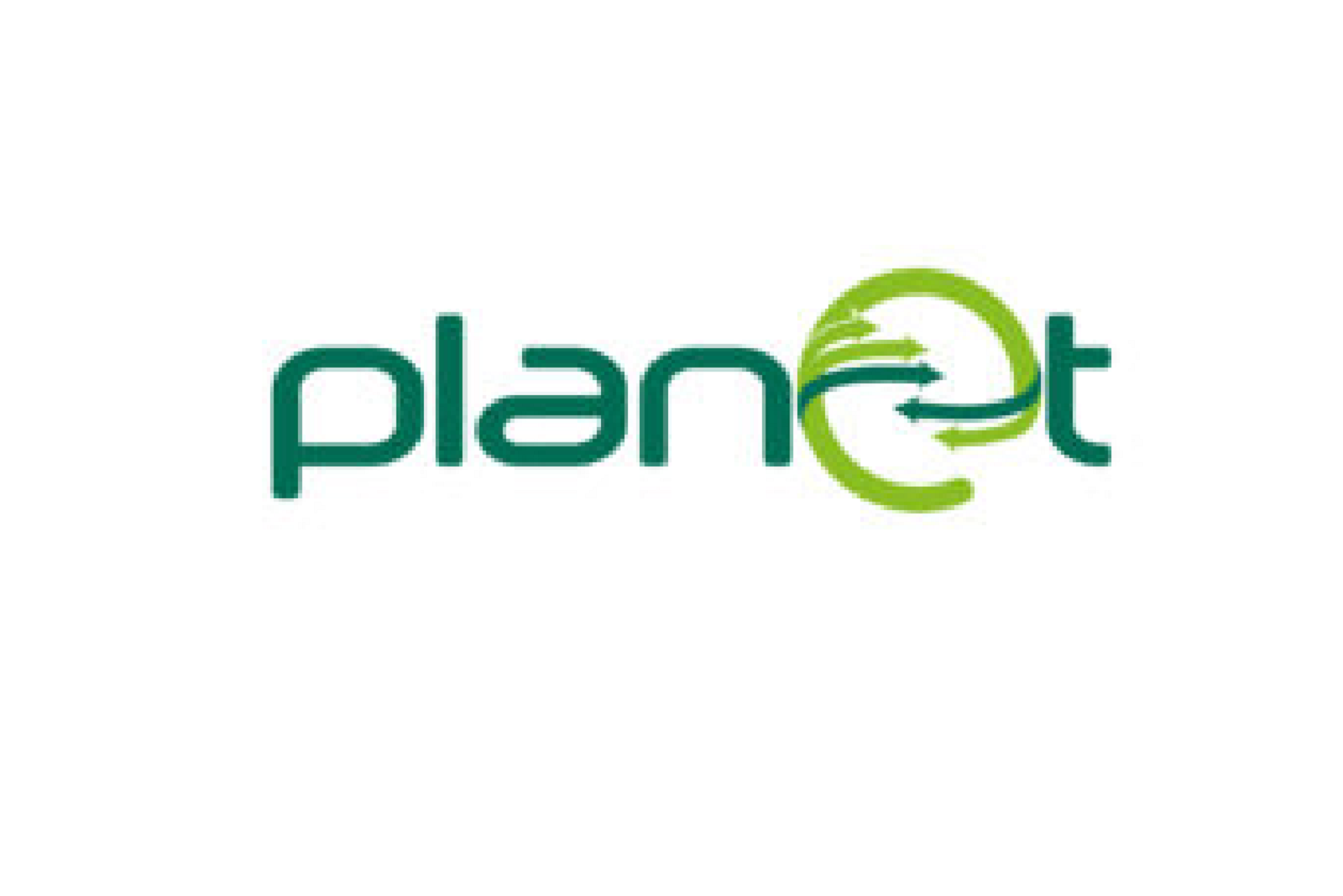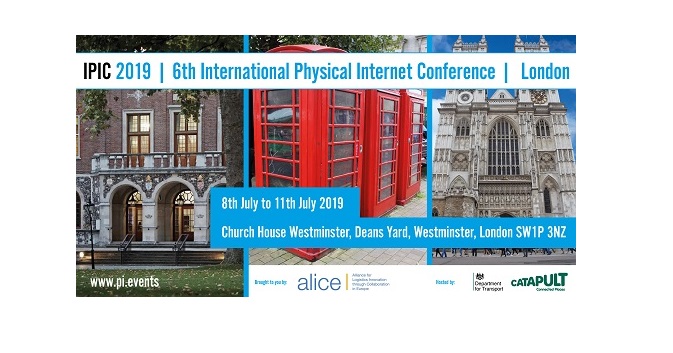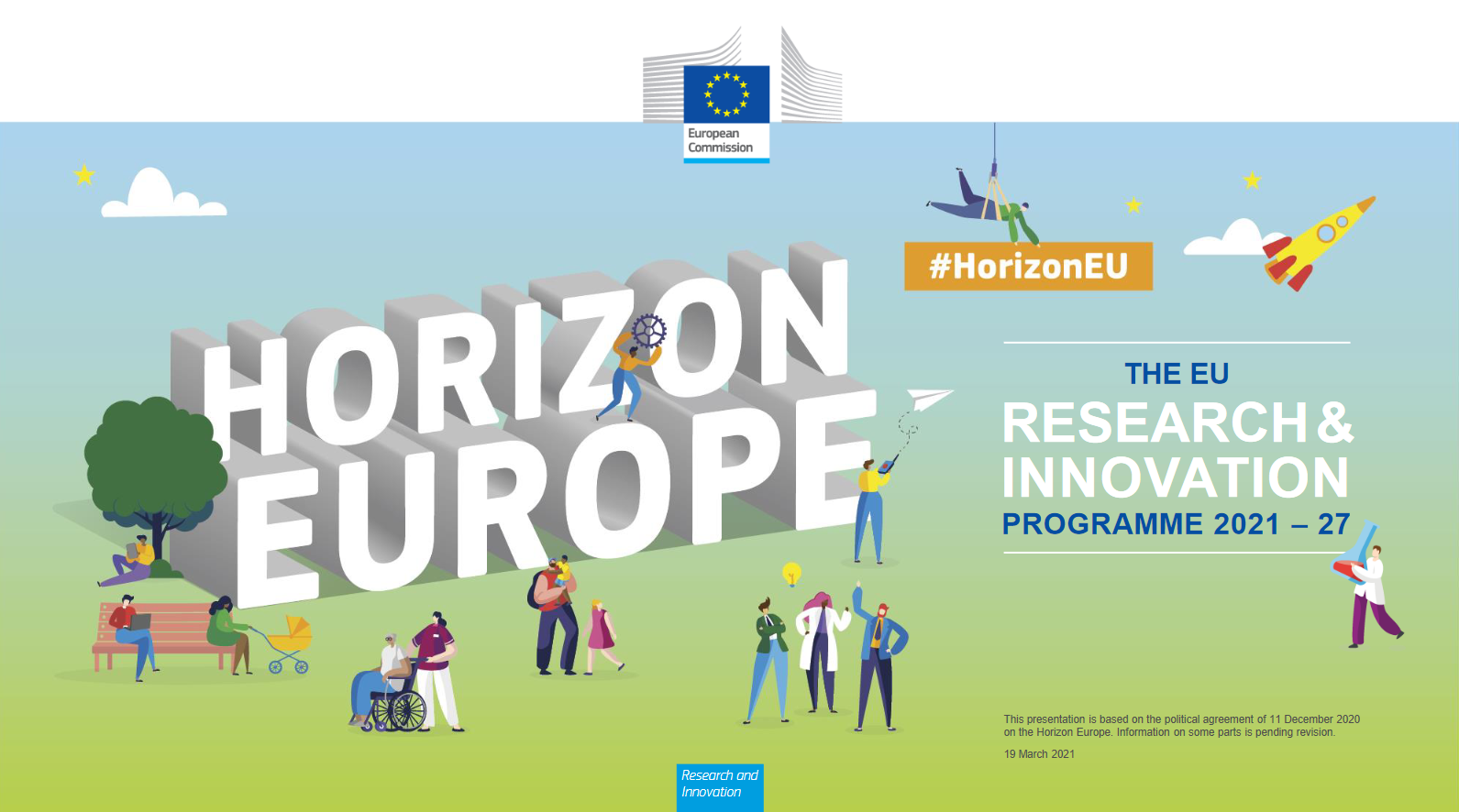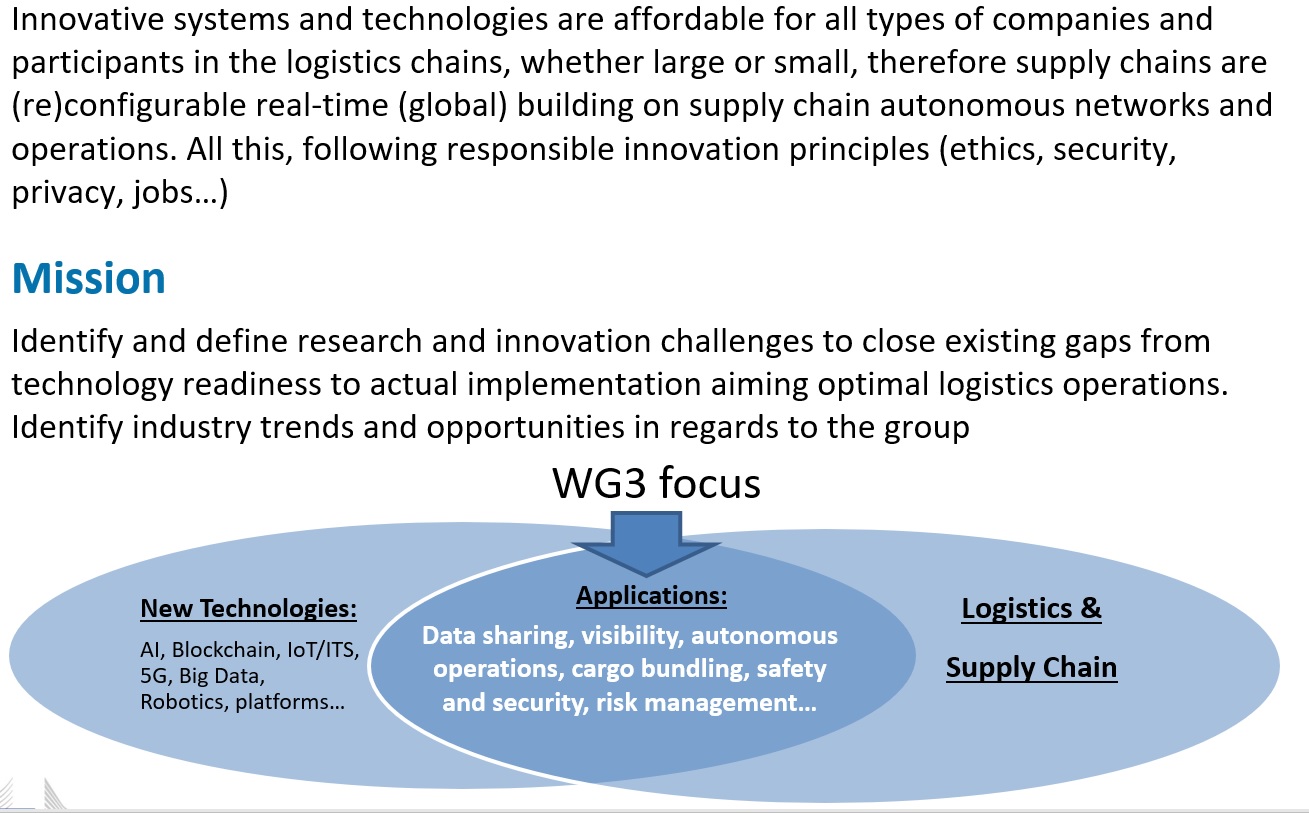The ambition of the Systems & Technologies for Interconnected Logistics Group thematic group is to define research and
innovation paths that need to be addressed to achieve fully interconnected and real-time
(re)configurable supply chains in (global) supply chain networks with
wide available and affordable ICT solutions for all types of companies and
participants.
In essence, this is a requirement to enable a Physical Internet: an open global logistic system founded on physical, digital, and operational interconnectivity, enabled through encapsulation of goods, standard interfaces and protocols. The aim the Physical Internet vision is to move, store, produce, supply and use physical objects throughout the world in a manner that is economically, environmentally and socially efficient and sustainable.
As part of the renewed ALICE strategy and the updating of working groups scopes end 2017, this thematic group is now integrating topics related to safety and security of supply chains, previously adressed in thematic group 1. Main topics adressed in this working group are: Low intrusive security technologies, supply chain resilience, advanced supply chain risk management, system based supervision, coordinated border management, visibility of end-to-end supply chains, seamless data interoperability, ownership & governance, intelligent objects, smart devices, IoT & ITS, Big Data & Data Analitycs, Blockchain, Artificial Intellingence, Digital Twins, dematerialization, autonomous logistics operations, transhipment technology and handling of logistics units.

